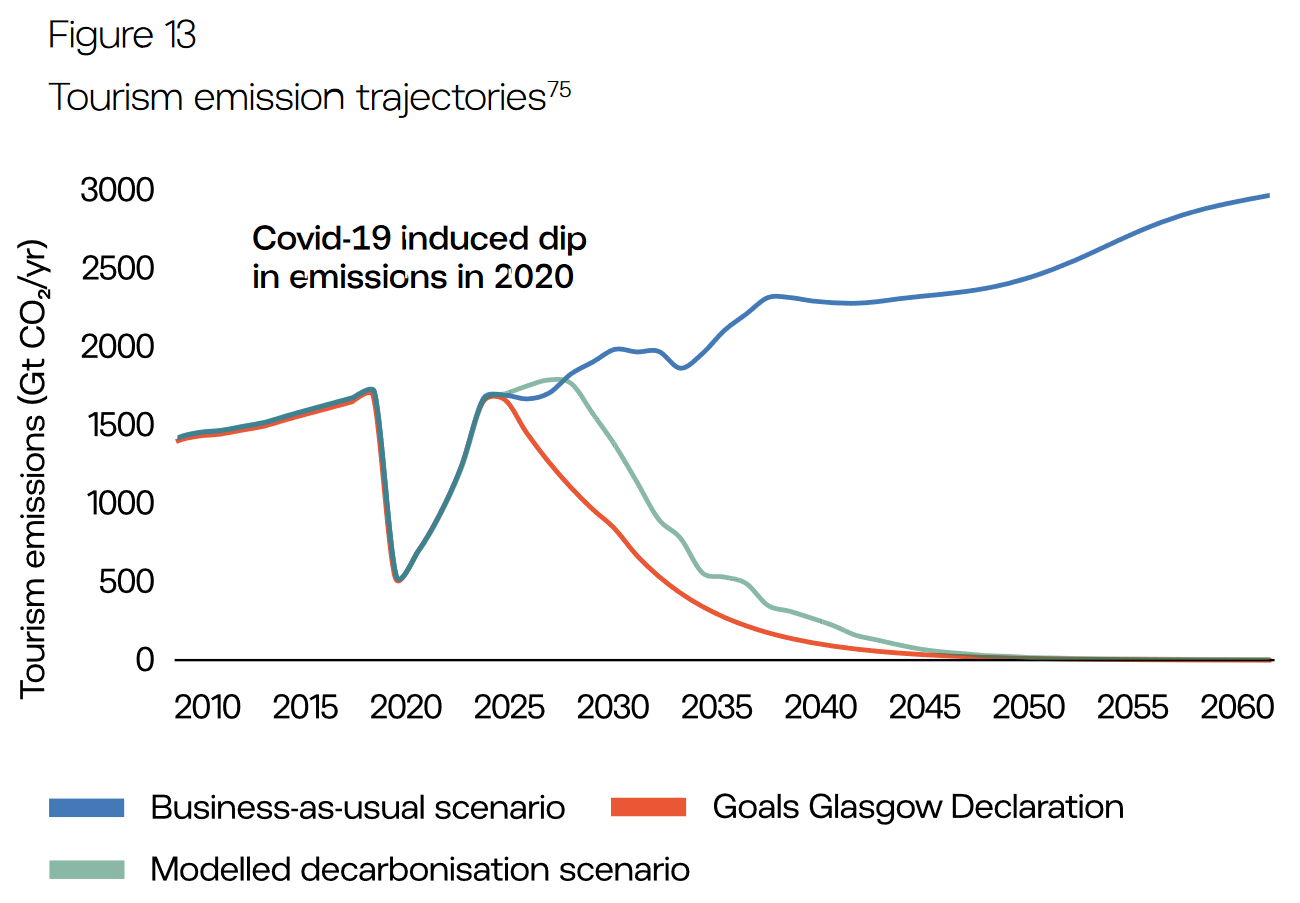Knowledge Networking Portal for Sustainable & Responsible Tourism










 TPCC: Five years left to demonstrate progress
TPCC: Five years left to demonstrate progress
Tourism and Climate Change Stocktake 2023
This Stocktake was undertaken by over 60 global experts who assessed progress and gaps in critical dimensions of tourism climate action, including mitigation, adaptation, policy, and finance. The key findings, distilled and highlighted within each chapter, collectively indicate that the entire tourism sector needs to go further and faster to rapidly reduce tourism emissions, accelerate climate resilient tourism development,and advance inter-sectoral and international collaboration to support the transformative response needed to achieve the goals of the Paris Climate Agreement.
At present, no country, no destination, and no sub-sector have achieved meaningful reductions in tourism greenhouse gas emissions. The many signs of progress, good practice and innovation identified in the Stocktake need to be urgently scaled. Overall, observed action and incremental change is insufficient to achieve the climate goals articulated in the Glasgow Declaration on Tourism and Climate Action of halving emissions by 2030, and achieving net zero GHG emissions by 2050, or earlier. At the same time, the intensification of observable impacts of climate change on tourism destinations is unmistakeable. Few tourism authorities have focused adequately on the potentially massive impacts of climate hazards and the paradigm shift that will be required in the transition to climate resilient tourism development.
|
|
In five years, the Tourism and Climate Change Stocktake 2028 must demonstrate progress on the many metrics identified in this 2023 Stocktake, including evidence of a sharp emission reduction trend, expanded adaptation and improved adaptive capacity, and a whole-of-sector roadmap to a just transition to climate resilient tourism. |
The findings raised many challenging questions about the future of tourism in a climate resilient and net-zero emissions world. To what extent does tourism need to be decoupled from difficult-to-mitigate air travel? What are the climate justice implications of such a decoupling and other proposed tourism mitigation policies, including the production and allocation of Sustainable Aviation Fuels? What is the reputational risk and consumer response of falling short of sector emission reduction goals? How do we keep tourists and tourism workers safe from worsening and more frequent climate hazards? Where compounding climate change impacts severely degrade current forms of tourism in communities and countries dependent on international tourism, what mechanisms could support a just transition for developing countries and those with lost tourism industry? How can co-benefits of tourism sector adaptation enhance climate resilient development in destinations around the world, but particularly in highly vulnerable low-income countries? What governance arrangements are needed to rapidly redirect climate finance to support climate resilient tourism development? How can climate compatible practice and tourism development be scaled up to become sector-wide standard?
Climate action in tourism is heavily influenced by other sectors, and tourism can do more to leverage its advocacy power within climate governance to accelerate solutions and avoid unintended consequences. The complexity of advancing climate action in tourism, whilst recognising tourism dependency in some countries and tourism contributions to biodiversity protection, requires an integrated approach involving multi-sector policy coordination and partnerships between public and private sectors. Tourism administrations must strengthen the collaboration with agencies leading the climate response in energy, transport and infrastructure systems, ecosystem management, and risk reduction and response. Partnerships will also be necessary to achieve adequate levels of climate finance for tourism climate action. Redirection of public sector funds towards investments that support low GHG, climate resilient tourism is imperative.
In 2023, the world witnessed an extraordinary succession of broken climate records, causing widespread and profound impacts on ecosystems and society. This moment compels a proportionate response from the tourism community, and we hope the new collaborations and foresight emerging from this Stocktake provide a stimulus toward a new era of climate resilient global tourism.
We are pleased to present this first Tourism and Climate Change Stocktake, after a year of extensive international collaborations related to the state of tourism and the climate crisis. It follows the TPCC Foundation Report introduced during COP27 in November 2022.
TPCC Executive Board December 2023
Prof. Daniel Scott, University of Waterloo
Prof. Susanne Becken, Griffith University
Prof. Geoffrey Lipman, President SUNx Mal
Download the full report with 23 findings from the TPCC site
See also: https://traveltomorrow.com/did-cop28-make-insufficient-progress-in-tourism/
|
|
|
| Concerned URL | https://tpcc.info/stocktake-report/ |
|---|---|
| Address | |
| Source | TPCC |
| Keywords | climate change |
| Target group(s) | Destinations , Education, Research, Consultancy , NGOs, Partnerships, Networks , Governments & Administrations |
| Topics | Climate Change - Energy and Resource Efficiency |















































